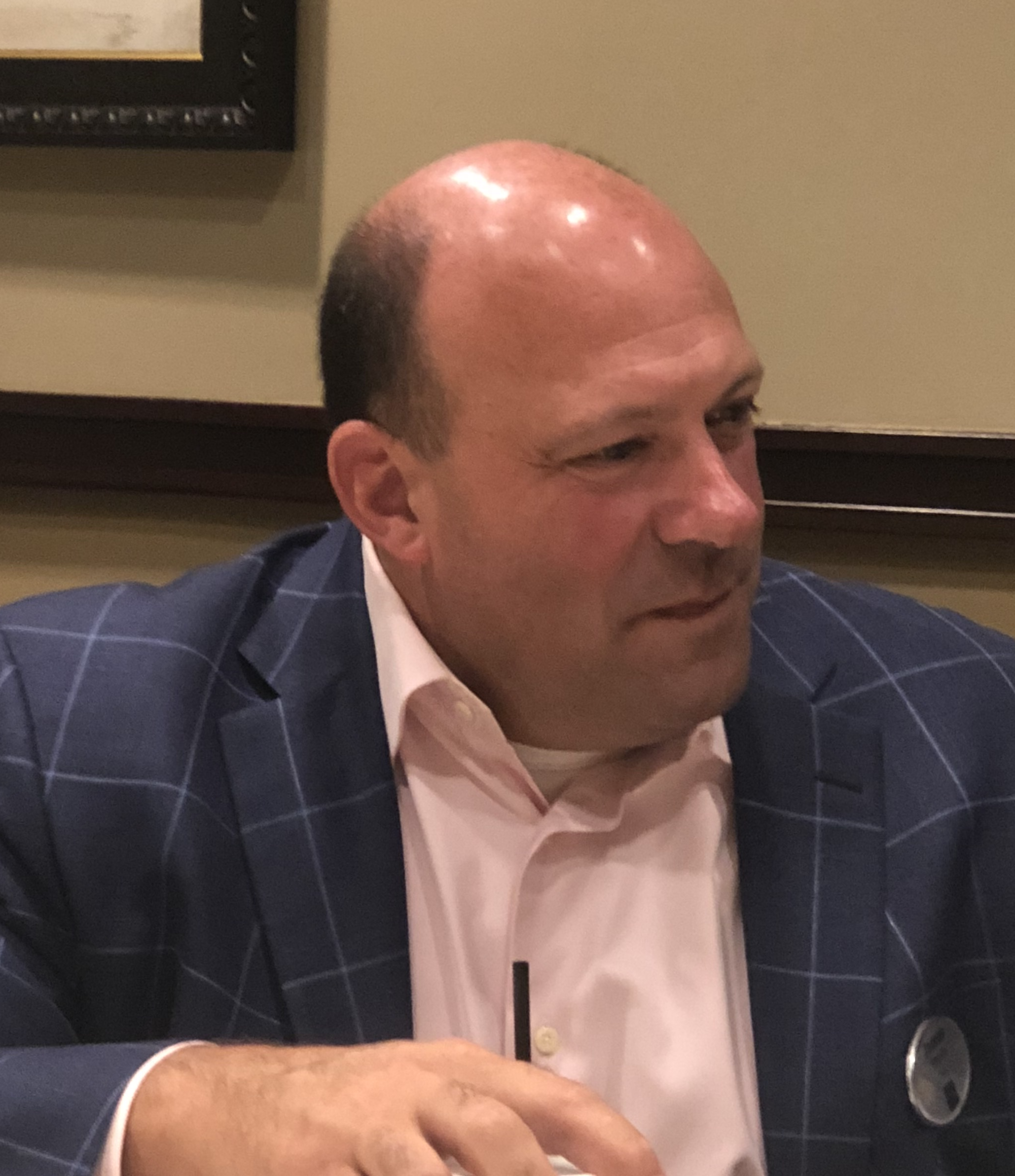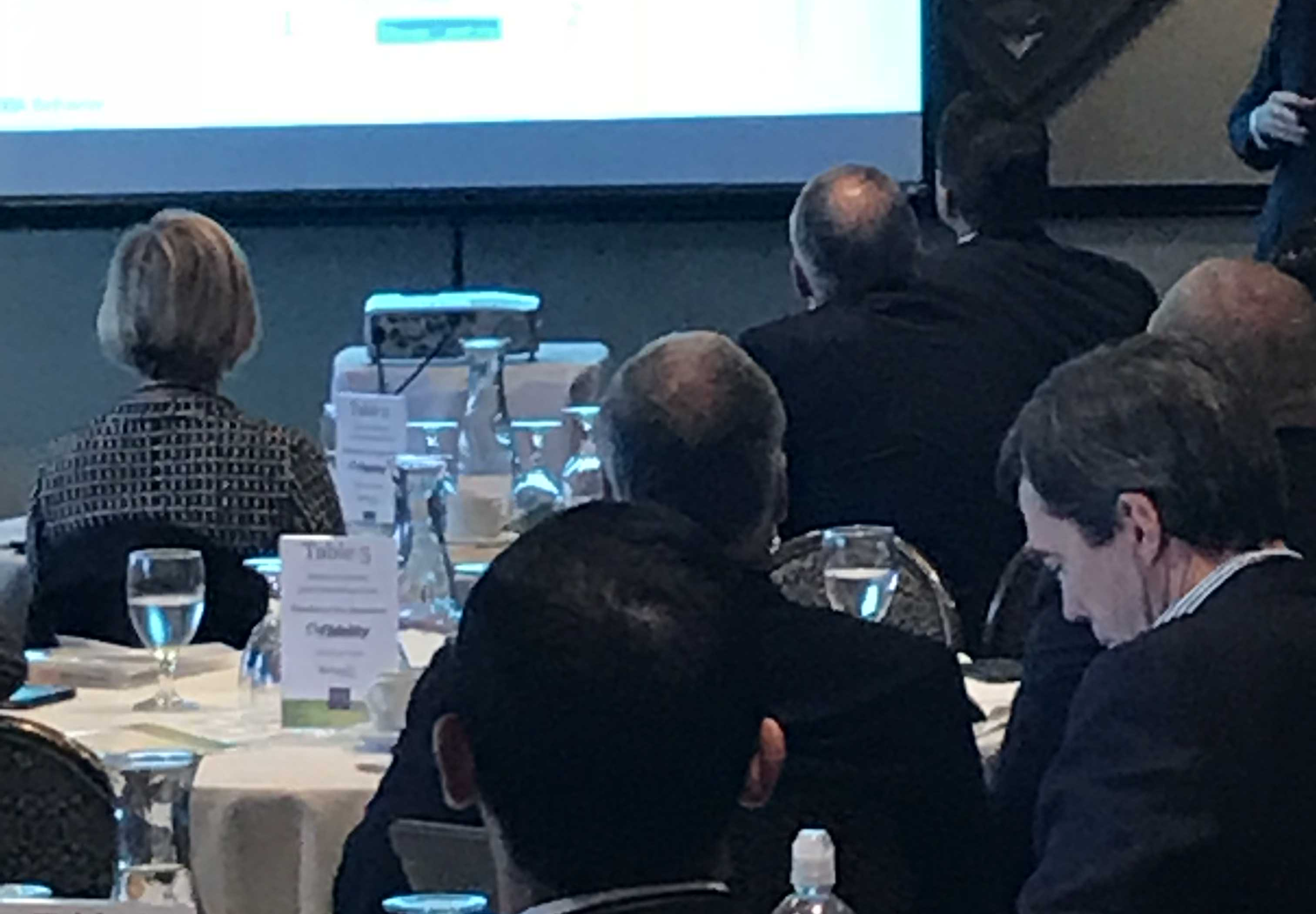
Sometimes the most revolutionary ideas are the simplest ones. For example, what if wealth management actually ran like a business?
It takes a rare independent trust company to hold an affiliate conference at all. When it’s National Advisors Trust, the news can turn heads across the industry landscape.
After all, National Advisors used to be a walled garden run for the exclusive benefit of the advisors who paid big bucks to buy in as partners.
Back then it would’ve been practically unthinkable for the firm to reach out to anyone else. Insiders knew and liked what was going on. Nobody outside the walled garden really mattered.

National Advisors
That was then. That firm finally decided to embrace the future, and from the energy at the affiliate conference, CEO Jim Combs and his team are only getting started.
Start with the numbers. I’ve occasionally heard other trust companies talk about the industry as a zero sum game, with a relatively fixed number of accounts chasing the sweet spot between price and service.
It’s hard to make a lot of money in that model either way. You just can’t scale fast enough to generate the kind of efficiency that makes growth worthwhile.
Sounds a lot like the advisory business, doesn’t it? But Combs knew National Advisors could do it differently and prosper from that disruptive strategy.
It’s working. There’s actual organic growth here. Referrals have tripled every year since 2016. The average account size has doubled.
There’s 200 advisory firms with 57,000 reps on the platform now. In the first quarter of this year alone, they booked more incoming assets than they saw in the entirety of 2014.
That’s not a walled garden for insiders only. That’s an institutional network, a new kind of enterprise with the ability to scale all the way to world domination.
Whether advisors are looking for a trust services partner or not, this is the kind of strategy we can all learn from.
From “practice” to “business”
Combs shares his general thoughts on where the industry is headed HERE. For our purposes, I’d like to tease out a few of the biggest thoughts.
First, the old National Advisors had a world-class service platform because the wealth managers who invested in the network demanded it. Nothing was too good for their clients.
However, like a lot of trust operations, it just wasn’t growing fast enough to utilize the platform effectively. Opening up put more of that excess capacity to work and accelerated ROI on every new hire.
The old firm ran like a practice, focused on supporting the right service mix to keep clients (who in this case were also shareholders) happy. If new clients came onboard, the added fee income justified new spending.
Combs transformed that culture into a business. The elite service that client-shareholders demand is still there on the front end, but now it scales a lot bigger.
In theory it scales to the moon. While commodity players in the trust industry have multiplied in the last decade, they’re still just chasing slivers of a deeply fragmented market.
Figure 80% of all trust assets are still in the hands of individual trustees and only 15-20% of advisors are actively working with trusts, and the right business model can roll up a lot of accounts without hitting any walls.
National Advisors has aggressive marketing plans. They’ve rebranded and are in the early stages of getting the word out that they’re a new kind of trust company, friendly to Millennials and happy to stay out of referring advisors’ way.
It reminds me of the early days of an innovator like Uber. On the outside, it looks like a conventional cab company until you start listing the differentiating factors.
Uber doesn’t actually hire drivers or operate a fleet. National Advisors has zero interest in making the portfolio investment calls. That’s for the advisors to do.
And Uber is actually about the app, not the mileage. It’s a technology company. National Advisors is rapidly becoming more than a commodity trust organization.

Not a practice: a culture
When you get even a few hundred advisors to travel across the country and share ideas, you’ve got the DNA of an entire professional culture that can play the role of a wholesaler, custodian, brokerage network or technology partner.
DNA is an important concept in the new National Advisors. It’s a scientific framework for talking about how things grow from sometimes humble origins, what separates species and people from each other.
You actually can’t spell “differentiator” without DNA. Everything here starts from the roots, the platform that some of the country’s most visionary advisors teamed up to build.
Now it’s flowering and changing the industry landscape in the process. Like Uber or the robo advisors, it might create entire new categories to replace the ones it disrupts.
We used a lot of Silicon Valley language at that conference. “Category killer.” The power of a “blue ocean” business model to support endless cooperative growth that a traditional “red ocean” keeps boiling down to eat-or-be-eaten survival tactics.
National Advisors has no interest in that kind of zero-sum game. As long as it can help advisors thrive, it thrives. Trust-linked accounts are incredibly sticky by conventional standards — the people at the conference had a lot of insight into that — and resist brute automation nicely.
After all, that front end of the trust business is all about human contact, anticipating the beneficiaries and interpreting the grantors. It’s about being able to deal with exotic assets without swallowing too much fiduciary risk.
It’s about customization, which normally scales linearly with human resources. You bring in X new accounts and need Y new people to deal with them.
Combs talks about “customization at scale.” That means applying the front end as effectively as possible to make more money as you grow.
Advisors and clients get the human touch. The firm can move from the niches our industry loves to powerhouse status.
And it’s the kind of thing every advisor looking over his or her shoulder at the robots can emulate. Use your human resources efficiently. Do what only humans can do.
That’s work with clients and prospects. After all, there are a lot of them out there once we leave the walled garden of legacy advisory practice behind. You can probably find a partner to do everything else.
We’ll be watching the model with great interest. For now, you can check out Combs’ thoughts HERE.



